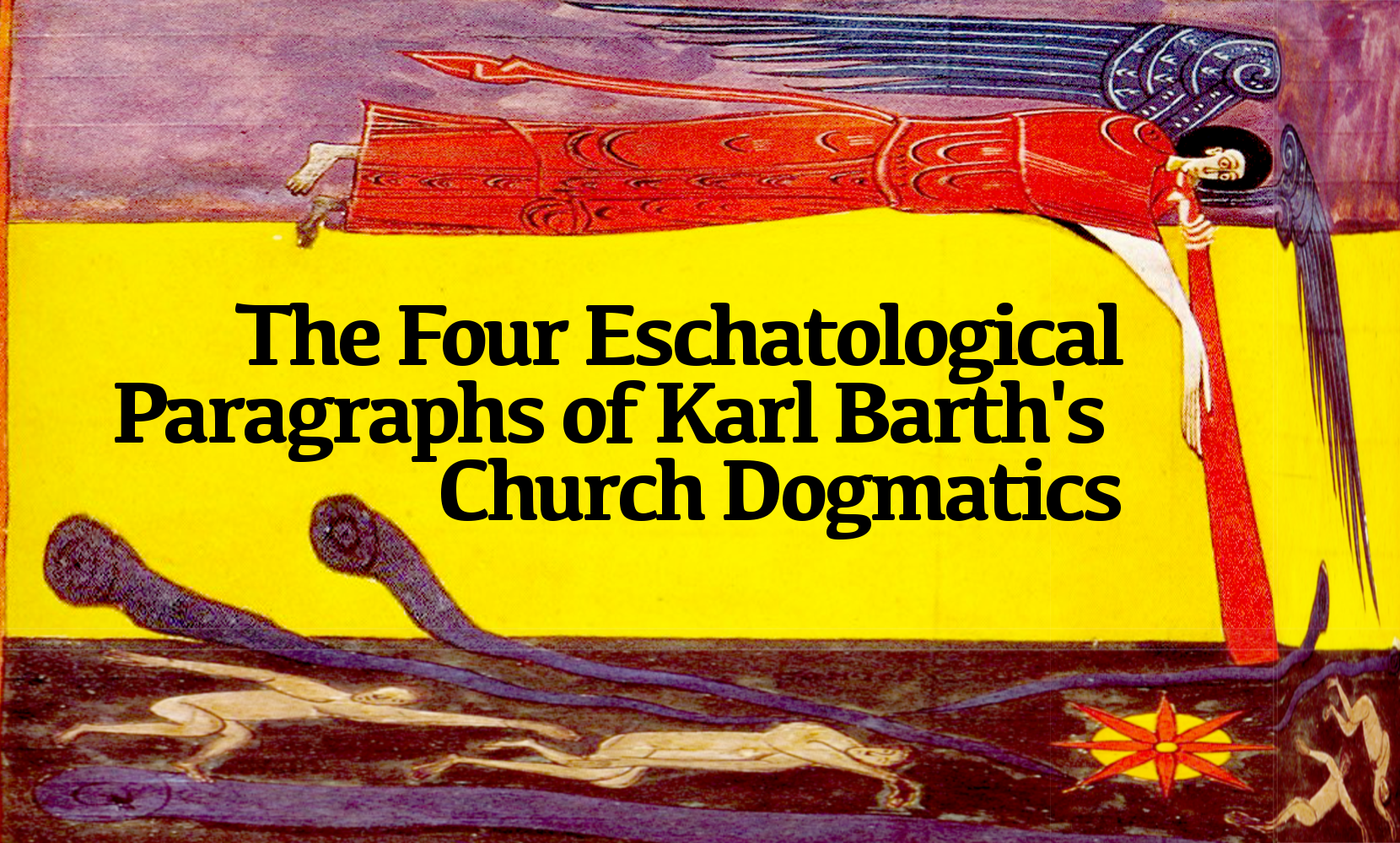
Karl Barth's Eschatology: An Introduction
Karl Barth wrote about Eschatology throughout the 75 paragraphs (i.e. sections §'s) of the Church Dogmatics, but there are four paragraphs in particular that elucidates Barth's doctrine of last things. In this post, I will provide a sketch of Barth's eschatology writings in the Church Dogmatics and list four paragraphs most clearly reveal what he believes will happen at the end of the world.
Karl Barth planned a fifth volume of the Church Dogmatics on eschatology that he never wrote, and it's contents remains a great Barthian mystery to this day. It's possible that an outline of the "Doctrine of Reconciliation" (CD V) might be discovered in the catacombs of the Karl Barth Archiv one day, but until then, we may only speculate what this mysterious fifth volume might have told us about eschatology (i.e. "The part of theology concerned with death, judgment, and the final destiny of the soul and of humankind"). Although we don't possess Barth's fifth volume of the Church Dogmatics, we do possess the first four volumes, and Karl Barth talks about eschatology throughout these 9,000 pages (6 million words) in the published Church Dogmatics. So we may not determine the final form of Barth's eschatology (in CD V), but we may discern much of the content of Barth's eschatology from the Church Dogmatics Vols. I-IV. This means we don't know exactly what Barth would write, but we do know in general what he believed would happen at the end of the age when Jesus comes again to judge the living and the dead as the Creed describes.
Barth wrote many shocking and unexpected things in the Church Dogmatics that were not anticipated, so I respect the caution and pause anyone may have in making conclusions regarding Barth's eschatology. Barth had "false starts" (e.g. Romans I, Christian Dogmatics, etc.), where he restarted over his theology works from scratch, but I do not believe that the fifth volume of the Church Dogmatics is a similar restart. In the course of the Church Dogmatic's publication, there were many shocking conclusions (such as Barth's rejection of Infant Baptism in final part-volume of the Church Dogmatics Vol. IV/4), but these shockers were not "false starts" or restarts. These shockers were unanticipated but they were consistent with what Barth had been saying all along, or per Jüngel, they were test-cases of the theology he established.
The Eschatological Paragraphs of the Church Dogmatics
Eschatology is woven in and through each and every page of the Church Dogmatics, but there are four paragraphs in the Church Dogmatics that specifically inform us of Karl Barth's eschatology: §47, §69, §70, and §73. And to be more specific, these four subsections are the best places to start understanding Barth's eschatology:
#1 "Ending Time" (CD III/2 §47.5)
#2. "The Promise of the Spirit" (CD IV/3.1 §69.4)
#3. "The Condemnation of Man" (CD IV/3.1 §70.3)
#4. "The Subject of Hope and Hope" (CD IV/3.2 §73.1)
In "Ending Time" we learn about Karl Barth's Argument Against Afterlife, and in "The Promise of the Spirit" we learn that Barth affirms a future return of Jesus as part of the threefold form of the parousia, and in "The Condemnation of Man" we learn that Barth rejected universalism, and at the very end of the Church Dogmatics, we learn in "The Subject of Hope and Hope" that Barth believes that the Coming of Jesus with be the extinction of humanity. Karl Barth promises that his eschatology gives us the New Testament truth, but it leaves me depressed as the last dodo facing the extinction of its race.
References:
[^Header Image Background]: By Français : Facundus, pour Ferdinand Ier de Castille et Leon et la reine Sancha - Madrid, Biblioteca Nacional, Public Domain, Link



December 16th, 2016 - 05:53
I have a re-construction of Volume 5. We do not need to find an outline of it, for he provided one in I.2. It has been enjoyable to reflect with Barth on eschatology and to see that he maintained a clear distinction between reconciliation and redemption. I still differ with you. Actually, I think he has a realistic eschatology. At the same time, I think both Moltmann and Pannenberg do a clearer job. Barth’s dialectical theology gets in the way of clarity on this point.